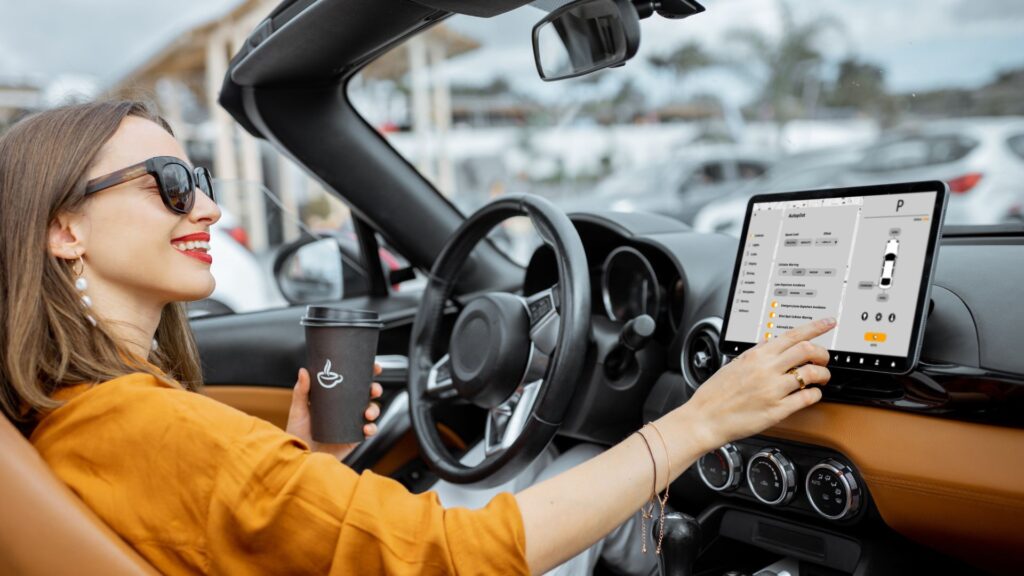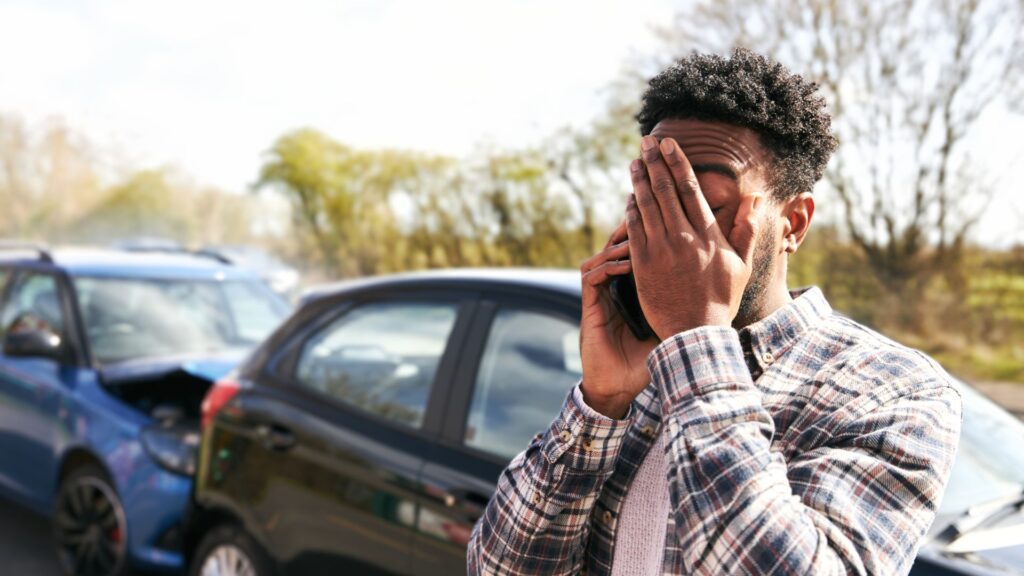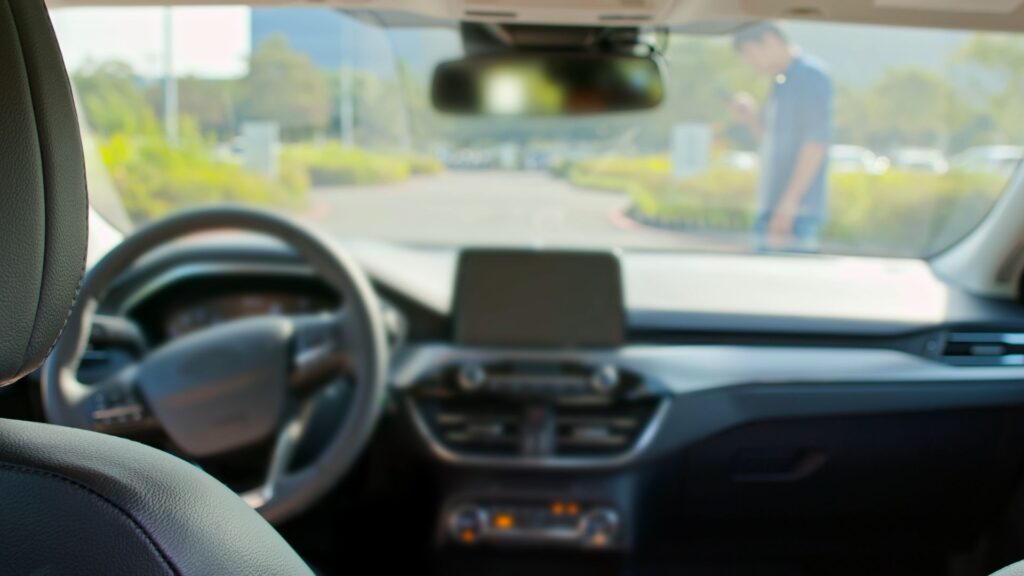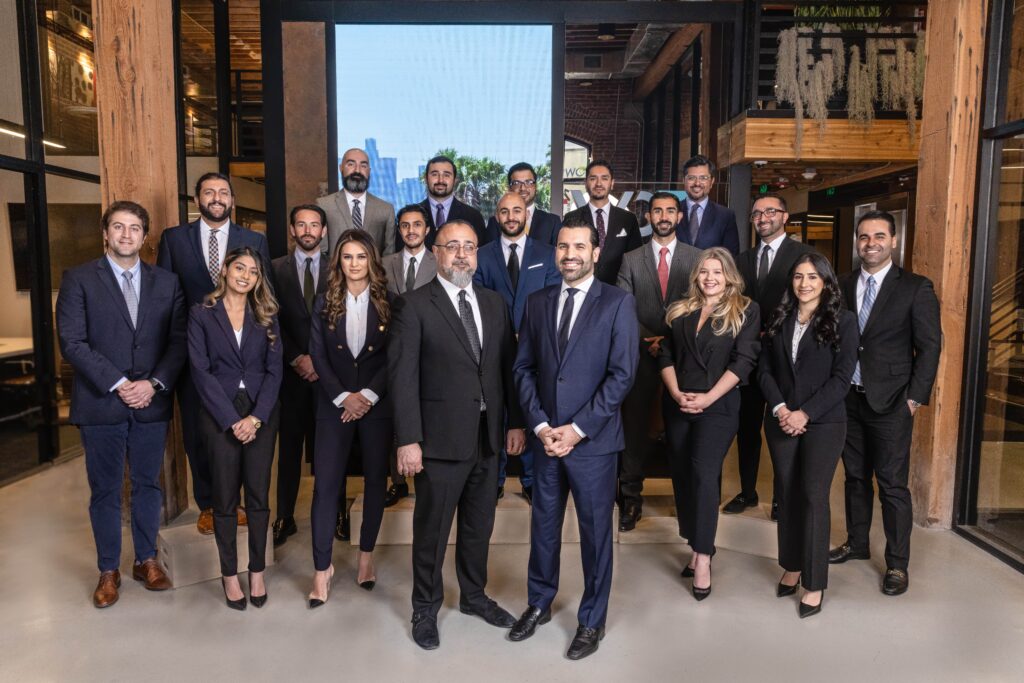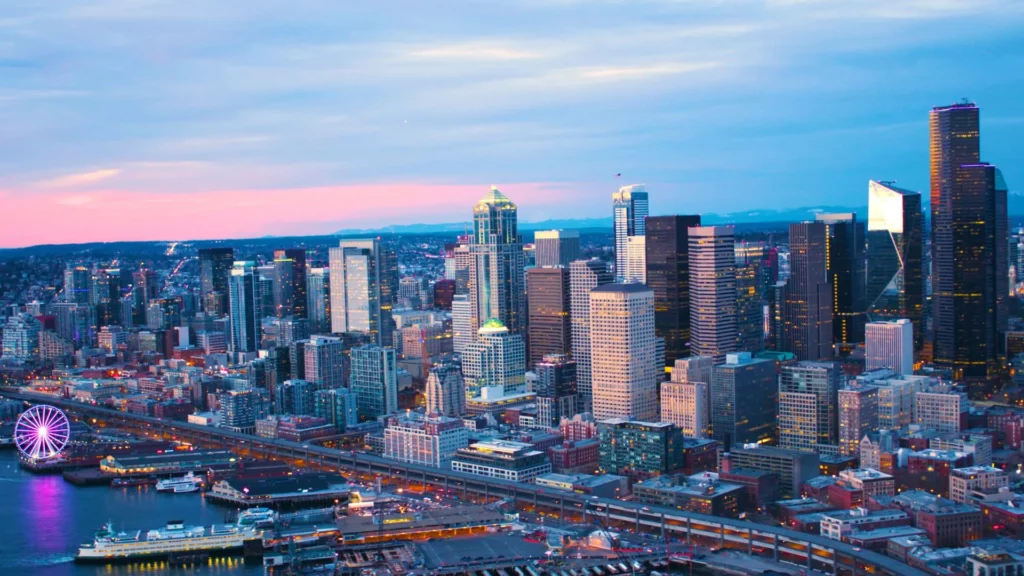Being in a San Francisco car accident, especially involving a self-driving vehicle, can be overwhelming. As self-driving car companies like Waymo are testing their vehicles all over the San Francisco peninsula, there has been a sudden increase in self-driving cars transporting riders to popular tourist hot spots like Fisherman’s Wharf and Union Square to more local destinations such as Daly City and the Colma BART Stations.
As such, if you have been involved in an accident with a self-driving car, you’re likely questioning who is at fault and how to get compensation for your injuries. At West Coast Trial Lawyers you’ll find a San Francisco self driving car accident lawyer ready to win your case!
If you find yourself involved in a self-driving car accident in San Francisco, remember that you have rights and options. The key to protecting these rights lies in taking prompt and appropriate action: seeking immediate medical attention, thoroughly documenting the accident scene, and consulting with a specialized self-driving car accident lawyer as soon as possible.
To speak to a Self-Driving Car Accident attorney call (213) 927-3700 or use the online contact form.
Understanding Self-Driving Car Accidents
Understanding the different levels of autonomy is key to comprehending the complexities of self-driving car accidents. The National Highway Traffic Safety Administration (NHTSA) defines these levels from 0 (no automation) to 5 (full automation). As we progress through these levels, the role of human drivers diminishes, and the responsibility of the vehicle’s AI system increases. This shift in control is at the heart of many legal and ethical questions surrounding autonomous vehicle accidents.
The future of transportation is rapidly approaching, with estimates suggesting that by 2040, a staggering 33 million automated vehicles will be cruising U.S. roads. However, this technological revolution comes with its own set of challenges. In 2023 alone, over 100 reported accidents involving autonomous vehicles occurred in California, highlighting the pressing need for understanding and addressing the unique aspects of a driverless car accident. As the prevalence of these vehicles increases, passengers, pedestrians, and other motorists are faced with a new landscape of potential risks and legal complexities.
Common Causes of Self-Driving Car Accidents
Driverless vehicle accidents, also known as self-driving car accidents, can stem from a variety of sources, often more complex than those involving traditional vehicles. AI errors, which are essentially software malfunctions, can lead to unexpected vehicle behavior. Sensor failures may prevent the car from accurately perceiving its environment, potentially causing collisions. Considering how tight and dense San Francisco traffic can be especially around areas such as downtown and Northeast Cordon, the likelihood of a self-driving car accidently crashing and malfunctioning is very likely.
Additionally, external human actions can contribute to accidents. As many drivers in the city get into car accidents due to the street design throughout the city, the chances of a driver hitting a self-driving car is just as likely as a car accident occurring on Lombard Street. For instance, the autopilot driver-assist system might stop for no apparent reason, catching other drivers off guard. Comprehending these common causes is essential to both prevent accidents and determine liability when they occur.
Types of Injuries in Self-Driving Car Accidents
Injuries resulting from self-driving car accidents can range from minor to severe, and in some tragic cases, can be fatal. Even though minor injuries are possible, the high-tech nature of these vehicles does not necessarily mean reduced injury severity. Severe injuries such as: traumatic brain injuries, spinal cord damage, and broken bones can occur, potentially leading to long-term health consequences and significant medical expenses. Given the potential for serious injuries, it is vital to seek immediate medical attention following an accident, no matter how minor it may initially appear.
Determining Fault in Self-Driving Car Accidents in San Francisco
When it comes to self-driving car accidents in San Francisco, determining fault is a complex process that involves assessing the roles of both technology and human operators. This complexity arises from the unique nature of autonomous vehicles, where control is shared between the AI system and, in some cases, a human driver. One of the major questions that often arises is: who is truly at fault when a vehicle’s automatic braking system fails to work or when the AI makes an unexpected decision?
In California, the legal landscape allows for multiple parties to be held liable for damages in a self-driving car accident. This could include:
- The driver of the self-driving car, if there is one
- The vehicle manufacturer
- Testing companies, under vicarious liability, if their employees are negligent in monitoring or controlling self-driving cars
Given these complexities, pinpointing fault is vital for pursuing compensation and often necessitates the expertise of a specialized lawyer who can traverse the intricate web of state-specific laws governing self-driving vehicles.
Liability of Self-Driving Car Manufacturers
The role of manufacturers in ensuring the safety of self-driving cars cannot be overstated. These companies bear the responsibility of designing, manufacturing, inspecting, and testing their autonomous vehicles to the highest safety standards. This responsibility extends beyond the initial production phase; manufacturers must continually update and improve their self-driving systems to address any identified issues or potential safety concerns.
When accidents occur, manufacturers can be held liable if a product defect in the self-driving system contributes to the crash. This is particularly relevant in cases where the vehicle was operating in autopilot mode at the time of the accident. Establishing manufacturer liability often requires an exhaustive investigation into the vehicle’s data recorder to identify any system flaws.
Moreover, if a manufacturer is found to have ignored state safety laws in the design or construction of their self-driving cars, they may face additional liability. This highlights the need for strict safety protocols and adherence to changing regulations in the autonomous vehicle industry.
Role of Human Drivers in Self-Driving Car Accidents
Despite the advanced technology in self-driving cars, human drivers still play a crucial role in their operation and safety. Even when a car is in autonomous mode, drivers have responsibilities that cannot be overlooked. In California, for instance, autonomous vehicle laws require human drivers to remain alert and ready to take control at any moment, which adds a layer of complexity to liability in accidents. This implies that drivers must be ready to intervene if the self-driving system stumbles upon a situation it cannot safely navigate.
Human error can contribute to self-driving car accidents in various ways. Some examples include:
- Rear-end collisions: These may occur if a human-operated vehicle fails to stop in time and crashes into the back of a driverless car.
- Sideswipe collisions: These often happen when a human driver inadvertently runs into the side of an automated vehicle.
- Pedestrian accidents: These can result from a driver’s failure to take control when necessary.
In these scenarios, human drivers can still be held liable if they fail to disengage the AI in dangerous situations or ignore warning signals. Victims of such accidents may have grounds to sue the driver or remote monitor of a self-driving car if they can demonstrate that the responsible party failed to take control when it was required for safety.
Insurance Company Involvement
Insurance companies play a pivotal role in handling claims related to self-driving car accidents, but the involvement of advanced technology complicates their traditional approaches. These companies must navigate the complex landscape of determining liability, which may involve assessing the responsibilities of manufacturers, human drivers, or both. Interestingly, even in the case of fully autonomous vehicles, the human driver’s car insurance typically covers the driverless car.
This intersection of cutting-edge technology and traditional insurance practices underscores the need for specialized legal expertise when dealing with self-driving car accident claims, as the process can be significantly more complex than in conventional auto accidents.
Legal Options for Accident Victims in the San Francisco Bay Area
For those who find themselves victims of self-driving car accidents in the San Francisco Bay Area, understanding the available legal options is crucial. Our Driverless Car accident lawyers can provide essential guidance and representation in these complex cases. The good news is that individuals injured in such accidents have the right to file a personal injury lawsuit. This applies even in cases involving self-driving cars, as their owners can be held liable for negligence. The key is to determine whether the accident resulted from human error or a vehicle defect, as this will guide the direction of the legal claim.
Depending on the circumstances of the accident, victims may have the option to pursue claims based on either personal or manufacturer liability. In some states, including California, victims can file a lawsuit against the manufacturer if the automated driving system fails to function safely. This is particularly relevant in cases where a defect in the vehicle’s self-driving technology is suspected to have caused or contributed to the accident. Given the complex nature of these cases, involving advanced technology and potentially multiple liable parties, seeking the guidance of an experienced attorney specializing in self-driving car accidents is often the best course of action.
Filing a Personal Injury Claim
When it comes to filing a personal injury claim after a self-driving car accident, it’s important to note that the process may vary depending on the specific laws of the state. In San Francisco and throughout California, victims have the right to pursue personal injury cases against negligent drivers or manufacturers for design flaws in autonomous vehicles. Building a strong case often requires an exhaustive investigation into the vehicle’s data recorder to identify any system flaws that may have contributed to the accident. This is where the expertise of an experienced legal team becomes invaluable. They can help navigate the complexities of these unique cases, gather the necessary evidence, and work towards securing fair compensation for the victim.
Pursuing a Wrongful Death Lawsuit
In the unfortunate event of a fatal self-driving car accident, the victims’ families may be entitled to file a wrongful death lawsuit. This type of legal action becomes particularly relevant if the self-driving system’s failure directly led to the fatal accident. Proving a wrongful death in these cases often involves a meticulous process, requiring expert testimony and detailed analysis of data from the vehicle’s recorder.
If a defect in the autonomous vehicle is found to have caused the crash, the wrongful death lawsuit may involve claims against the car manufacturer. These motor vehicle collision cases are inherently complex, combining the emotional toll of losing a loved one with the technical intricacies of autonomous vehicle technology, making the guidance of a specialized attorney crucial in navigating the legal process and seeking justice for the bereaved family.
Seeking Compensation for Property Damage and Lost Wages
In addition to personal injury claims, victims of self-driving car accidents can also seek compensation for property damage and lost wages. This includes the cost of vehicle repairs or replacement, which can be substantial given the advanced technology involved in autonomous vehicles. Moreover, if the injuries sustained in the accident have impacted the victim’s ability to work, they may be eligible to claim compensation for lost wages. It’s important to note that these claims require demonstrating a direct link between the accident and the victim’s inability to work. Our skilled attorneys can help gather the necessary evidence, such as medical records and employment documentation, to build a strong case for compensation that covers not just immediate losses but also potential future earnings impacted by the accident.
Importance of Hiring a San Francisco Self-Driving Car Accident Lawyer
In the context of self-driving car accidents, the necessity of hiring a specialized lawyer is of utmost importance. These cases involve complex liability issues that require specific legal expertise to navigate effectively. The intersection of cutting-edge technology and evolving legal frameworks creates a unique landscape that demands specialized knowledge and experience.
An experienced car accident attorney, particularly one well-versed in self-driving car accidents, can significantly improve the outcome of your car accident case. They can review the facts of your case, advise on the best course of action, and help protect your rights throughout the legal process. This becomes especially crucial in cases involving serious injuries or fatalities, where the stakes are high and the legal complexities are magnified. By leveraging their knowledge of self-driving car laws and insurance policies, car accident attorneys can help victims receive higher compensation and manage communications with insurance companies, reducing stress and pressure on the accident victim.
Expertise in Autonomous Vehicle Laws
Legal experts specializing in self-driving car laws bring invaluable expertise to the table. We are well-equipped to navigate the evolving regulations surrounding autonomous vehicles and ensure compliance in accident claims. This specialized knowledge is crucial when dealing with the unique aspects of self-driving car accidents. Our attorneys can skillfully identify whether a crash was due to human error, system failure, or a combination of both, which is essential in determining liability and building a strong case.
Having in-depth understanding of the legal landscape surrounding autonomous vehicles allows us to anticipate potential challenges, interpret complex laws, and develop effective strategies to protect our clients’ interests.
Navigating Complex Insurance Claims
It’s crucial to understand that insurance adjusters are not on the side of accident victims; their primary goal is to save money for the insurance carrier. These adjusters often employ tactics such as pressuring victims to accept quick, lowball settlements that are typically far less than what the victim deserves. This is where the expertise of a knowledgeable attorney becomes invaluable. They can help you avoid the pitfalls of hasty settlements, ensure that the insurance company doesn’t use your statements against you, and guide you through the claims process to secure fair compensation.
By having a legal expert in your corner, you level the playing field and increase your chances of receiving the full compensation you’re entitled to.
Maximizing Compensation for Accident Victims
One of the primary roles of an experienced driverless car accident lawyer is to maximize the compensation for their clients. In self-driving car accident cases, this involves negotiating settlements that cover a wide range of damages. These can include:
- Current and future medical expenses
- Lost wages
- Pain and suffering
- Potential future economic losses resulting from the accident
Lawyers dedicated to these cases understand the full scope of potential damages and work tirelessly to ensure their clients are adequately compensated for all aspects of their injuries and losses. While the total amount will vary on a case by case basis, accident victims who are curious on how much they can be compensated can estimate their damages by inputting their expenses in a personal injury settlement calculator, but an accident attorney will be able to give a more accurate estimate of your claim.
Moreover, an experienced car accident lawyer can often increase the settlement value by negotiating with healthcare providers to reduce charges, thereby maximizing the amount that goes directly to the victim. This comprehensive approach to seeking compensation is crucial in ensuring that accident victims receive the support they need to recover and move forward after a self-driving car accident.
Steps to Take After a Self-Driving Car Accident
Following a self-driving car accident, taking appropriate measures can significantly influence your safety, health, and potential legal case. Whether you have gotten in an accident around Dolores Park or the congested streets in Chinatown, the first and most crucial step is to move to a safe location if possible and assess yourself and any passengers for injuries. Once you’re safe, immediately call 911 to report the accident and request emergency assistance if needed. Remember, your safety and well-being are the top priorities in these initial moments.
After ensuring immediate safety, it’s important to document the accident scene thoroughly. This includes taking photos, gathering witness statements, and exchanging information with all involved parties. Be sure to collect names, contact details, and insurance information from everyone involved. Even if you feel fine, it’s crucial to seek medical attention as soon as possible. Some injuries may not be immediately apparent, and a medical evaluation can provide important documentation for your case.
Finally, consider contacting a self-driving car accident lawyer for a consultation and case evaluation. Their expertise can be invaluable in navigating the complex legal landscape that follows a self-driving car accident.
Documenting the Accident Scene
Proper documentation of the accident scene is crucial, especially in cases involving self-driving cars where detailed investigations are often necessary to establish liability. Here are some steps to follow:
- Start by capturing comprehensive photos of your vehicle, the self-driving vehicle, and the overall collision scene.
- Be sure to photograph from multiple angles to provide a complete view of the accident.
- Pay special attention to any visible damages, skid marks, or other relevant details.
It’s also important to note the following information:
- The make and model of the self-driving vehicle
- Its license plate number
- Any other identifying information
- The exact time, date, and location of the accident
This detailed documentation can prove invaluable in supporting your case and helping investigators reconstruct the events leading to the accident.
Seeking Medical Attention
After a self-driving car accident, seeking prompt medical attention is crucial, regardless of how minor your injuries may seem. Your first step should be to call 911 to ensure medical assistance is dispatched to the accident scene. Even if you feel fine initially, it’s essential to get a thorough medical examination to rule out any internal injuries or delayed-onset symptoms.
During your medical visit, be sure to:
- Describe all symptoms in detail
- Mention that you were involved in a self-driving car accident
- Request a copy of your medical report for your records, as this documentation can be crucial for any future legal proceedings
- Follow up with any recommended medical appointments to monitor your condition over time.
Remember, your health is paramount, and proper medical documentation can also play a vital role in supporting your legal case if needed, especially when dealing with medical bills.
Contacting a Self-Driving Car Accident Lawyer
Reaching out to a specialized self-driving car accident lawyer as soon as possible after the incident can significantly impact the outcome of your case. Early consultation with an attorney can be crucial in preserving vital evidence for your case. Self-driving Car specialized lawyers are better equipped to understand the unique legal issues surrounding autonomous vehicle accidents and can effectively advocate on your behalf. We can:
- Guide you through the complex process of filing a claim
- Help you avoid common pitfalls
- Ensure that your rights are protected throughout the legal proceedings
Moreover, we can start building your case immediately, gathering necessary evidence and expert testimonies while the details of the accident are still fresh. Remember, the sooner you involve a legal professional, the stronger your position will be in seeking fair compensation for your injuries and losses.
Are Self-Driving Cars Safe?
The safety of self-driving cars is a topic of ongoing debate and scrutiny. While these vehicles promise to revolutionize transportation, recent data suggests that they are not yet safer than human drivers. The rise in self-driving car accidents can be attributed to various factors, including system limitations, driver distraction, and over-reliance on autopilot capabilities. This complex interplay of human and machine factors makes it challenging to provide a definitive answer on the safety of autonomous vehicles.
In San Francisco, a hub for self-driving technology, we’ve seen both progress and setbacks. The California Public Utilities Commission recently allowed companies like Waymo and Cruise to charge customers for driverless taxi rides in the city, signaling confidence in the technology. However, this comes with the caveat that a safety driver is still required behind the wheel for driverless taxis. The city has become a testing ground for these vehicles, with Waymo and Cruise combined having driven over 8 million driverless miles throughout the city, driving passengers from the edge of Fisherman’s Wharf to the Serramonte Center. Yet, this extensive testing has also revealed ongoing safety concerns, as evidenced by recent accidents and the need for continued human oversight.
Statistics on Self-Driving Car Accidents
Recent statistics on self-driving car accidents provide a mixed picture of their safety performance. In California alone, Waymo and Cruise reported a total of 102 crashes involving driverless vehicles in 2023. This data underscores the ongoing challenges in perfecting autonomous driving technology. Waymo’s vehicles, for instance, have been involved in approximately one crash for every 60,000 miles driven. While this may seem infrequent, it’s important to consider the potential severity of each incident.
Diving deeper into the data, we find that many of these accidents are low-speed collisions. Waymo reported 17 such incidents where other vehicles rear-ended or backed into a stopped Waymo car. On the other hand, Cruise has faced more significant challenges, with three notable crashes where their software made serious errors, including an incident where a Cruise vehicle collided with a city bus. These statistics highlight the need for continued improvement in self-driving technology and underscore the importance of having robust legal frameworks in place to protect all road users as this technology continues to evolve.
Technological Improvements and Future Prospects
Despite the challenges, there are promising developments in self-driving car technology that point towards a safer future on our roads. Waymo, for instance, has made significant strides in improving its autonomous driving software. They’ve developed an advanced system capable of preventing 82% of crashes by anticipating erratic behavior from other vehicles. This represents a major leap forward in the ability of self-driving cars to navigate complex and unpredictable traffic situations.
As these technological improvements continue, we can expect to see a reduction in accidents caused by limitations in autonomous systems. However, it’s important to note that achieving perfect safety remains a complex challenge, requiring ongoing research, testing, and regulatory oversight.
The future of self-driving cars looks promising, but it will require continued collaboration between:
- tech companies
- automakers
- regulators
- legal experts
to ensure that these vehicles can truly deliver on their promise of safer roads for all.
Speak to an Expert Self-Driving Car Accident Lawyer in San Francisco for Free!
If you have been a part of a self-driving car accident in San Francisco, seeking expert legal advice is essential to protect your rights and explore your options. West Coast Trial Lawyers specializes in autonomous vehicle accidents and we offer free initial consultations. During these consultations, you can discuss the details of your case with an experienced attorney who can provide valuable insights into your legal standing and potential next steps.
Taking advantage of a free consultation with an expert self-driving car accident lawyer can be an essential first step in navigating the complex legal landscape following an auto accident involving a self-driving car and ensuring that your rights are fully protected. Call (213) 927-3700 or use the online contact form to speak to our legal staff.
Frequently Asked Questions About Self-Driving Car Accidents
What Should I Do Immediately After a Self-Driving Car Accident in San Francisco?
After a self-driving car accident in San Francisco, ensure your safety and move to a safe location. Then, call 911 to report the accident and document the scene by taking photos and gathering witness information. It’s important to seek medical attention to rule out any hidden injuries. Finally, consider contacting a specialized self-driving car accident lawyer for legal guidance.
Who Can Be Held Liable in a Self-Driving Car Accident?
Liability in a self-driving car accident can involve the human driver, the car manufacturer, the testing company, or other drivers. It’s important to seek legal guidance for a thorough investigation and analysis of the accident.
How Is Fault Determined in a Self-Driving Car Accident?
Fault in a self-driving car accident is determined by assessing technological and human factors, analyzing vehicle data, evaluating the self-driving system’s performance, considering human drivers’ actions, and examining external factors such as road conditions. Expert testimony, accident reconstruction, and specialized legal assistance may be necessary to establish fault.
Can I Still File a Personal Injury Claim if I Was Injured in a Self-Driving Car Accident?
Yes, it is still possible to file a personal injury claim if you were injured in a self-driving car accident. The process may be more complex, but it’s important to consult with a lawyer experienced in self-driving car accidents to understand your options and build a strong case.
How Long Do I Have to File a Lawsuit After a Self-Driving Car Accident in San Francisco?
You generally have two years from the date of the accident to file a lawsuit for a self-driving car accident in San Francisco. However, it’s important to act promptly to preserve evidence and ensure an accurate witness account. If your claim is against a government entity, the time frame to file an initial claim may be shorter. It’s best to consult with a self-driving car accident lawyer as soon as possible after the incident.
